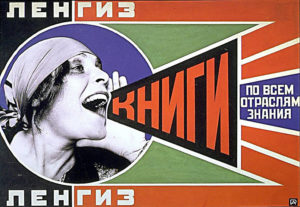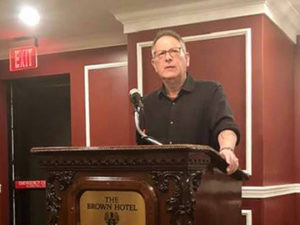
Pure speech means the communication through spoken or written words or through conduct limited in form to that necessary to convey the idea. Pure speech is distinguished from symbolic speech, which means conveying an idea through behavior. [. . .] Among different type of speeches, pure speech is given the greatest constitutional protection. Pure speech does not include libel, slander and obscenity. (Online source; edited)
A week after the Louisville Conference, and the nonsite event organized to counter my being canceled from the conference by feckless administrators at the University of Louisville, I want to reflect on the “speech” given there. Not “speeches,” plural—”speech” is a concept with a precise legal meaning, and an “act of speech” is what the event truly was. Speech in this sense does not simply mean “a formal address or discourse delivered to an audience” but is a kind of act that, as we know, is legally protected in most instances. As a legal concept, speech is divided into two main aspects, as above: speech that conveys an idea through verbal communication and speech that conveys it through behavior. For instance, if I am picketing a Big Three auto maker, the first speech may be my picket sign but the second is my presence on the public pavement outside the chain link fence of the company parking lot. It is not simply what I am saying, but what I am doing on the picket line saying it.
It is significant, then, that what the University of Louisville took steps to deny was not what I would say at the conference—likely some dingbat theoretical discussion of avant-garde poetry—but my presence on the campus itself. The ostensible reason for their ban was to extend Wayne State University’s job action—conveyed in the dean’s letter and now under appeal by AAUP-AFT in four concurrent grievances—to shield seven Wayne State students and one faculty from my presence. In so doing, Louisville was creating the kind of “safe space” that has revived the concept of in loco parentis in the neoliberal, client-based university. The harm it would shield them from, arguably, would be some kind of reaction to my mere presence in the hallway or at a session. The online journal Dispatches from the Poetry Wars effectively skewered this oversensitivity in an online satire. The real reason for my ban, I argue, was to shield the University from any publicity concerns should my physical presence on the campus become a scandal. The “symbolic” meaning of my physical presence on the campus as an act of speech is what they sought to ban—thus aligning their action with the larger “cancel” campaign itself. The students would experience no threat by my presence at the conference; rather they could not tolerate it, as a mere personal and social preference. They wanted a conference that was “one asshole light,” as one of them put it, and they used in loco parentis to get it.

My presence at our “nonsite” event was itself an act of speech—a symbolic one, in refusing to be canceled from the conference—separate from, but obviously connected to, what I actually said. I want to focus on this symbolic aspect of speech, because it is not transparent. I was, in this act of speech, physically outside of, banished from, the conference itself (much like the picket line has a right to symbolic speech only outside the private property of the company). But the University of Louisville is a public institution, and they cannot ban my presence from an open, public institution without cause; what they did do is override the judgment of the committee and remove my session, paper, and name from the conference program. My symbolic behavior, then, was to stand outside the boundaries of the conference and give a paper—quite a contradictory act of speech, captured in the photo above. Here, the discomfort of being banished is as readable as the assertion of my right to be there—the head tilted up, at an angle, looking out and away from the “nonsite” of the hotel meeting room toward ineffable space and uncertain goals. It is this dialectic between being canceled and refusing to be that I see in my physical presence, in the act of speech. I am reminded of the megaphone of our conference poster, and its inspiration in Rodchenko’s poster above, as not merely a positive assertion but also an acknowledgment of its negative context, the condition of denial it seeks to overcome, caught at a precise moment. (For Rodchenko, this negativity would be the social/literacy challenges the poster sought to remedy.)
My presence was double-edged, a site of loss of community I was barred from as much as an assertion of my right to be a part of it. Also part of the event were three remarkable presentations that were, as presences, also symbolic acts—papers by Tyrone Williams and Laura Hinton and a performance by Carla Harryman. The presence of the audience was as well a symbolic act, as was the discussion that followed. Its dialectical negative would be hostile or disruptive voices that were not there, even though threatened, and an overall tension if not outright boycott that split the conference but could not be spoken or addressed. In the face of these awe-full affects (fear the greatest among them, but likely a spectrum from ambivalence to disdain), it was remarkable to see the presence of my former undergraduate student Monica Serwinek, who drove down from Detroit to attend the event and convey the good wishes of her cohort. The Q&A was, for those present, an engaged opening of a longer conversation on the limits of speech in the classroom, the department, the university, in our neoliberal era of increased authoritarianism and market expediency. (The event had nothing to do, by the way, with any issue of “free speech” for neofascists or hate mongers, a red herring thrown out to confuse the gullible if there ever was one.)
And what did I say in my “speech,” apart from tilting my head toward the ineffable? My argument was double-edged: I wanted to use Michel Foucault’s concept of parrhesia, or “fearless speech,” to show how “call out” culture may begin with “speaking truth to power,” but also how it could be a site of misrecognition or nontransparency. My example of calling out in the positive sense was the encounter I had with Amiri Baraka at the 2000 Poetry of the 60s conference, about which I have written online. Negative examples of calling out began with Joshua Clover and Juliana Spahr’s mischaracterization of the event and what I said at it, dividing nicely between symbolic and communicative acts of speech. (I am eager to see my polemic find its way into print, not least because of the online flack I routinely get from such neoleftists and their ilk.) The second part of my argument departed from the transparency of Foucault’s “fearless speech” to the psychodynamics of speech in Lacan; my examples were the psychic investment in humiliation as a part of identity construction in Spahr and Stephanie Young’s Megaphone and the formation of the collective subject in relation to unconscious content, along the lines of my seminar “Questions of Unreason.” Using Lacan’s distinction between “acting out” and “passage à l’acte,” I discuss the online mobbing campaign as form of passivizing asociality that destroys both persons and social bonds: “In the forms of mobbing and canceling, the person no longer exists; the name becomes a shape shifter for any kind of traumatic content. The forms that mobbing and canceling take are the derealization of the person and an entry into the Real”—into a condition of media-propagated Unreason that mimics the disinformation, fake news, and projection in the current public sphere. (What I did not discuss was anything specific about “the case,” which I intend to address responsibly at the proper time.)
In my speech, I wanted to create a critical genealogy of call-out and cancel culture that would augment my speech in presenting it. In that sense, I want to return to the banning of my physical presence at the Louisville Conference. What sort of presence would it normally be? In the context of poetry and poetics, this often means membership in an aesthetic community, often seen as political in its own right (from the communal politics of the New American Poetry, what Robert Creeley called “The Company,” to present poetry communities, both bicoastal and dispersed). Over three days every year, the Louisville Conference has been the host to a version of poetic community, and it is thus no accident that the self-regulating or policing aspects of some poetry communities informed the (failed) online petition to cancel my presence. But the Louisville Conference is also a part of an academic culture that protects Academic Freedom—to do one’s work even if it takes controversial positions. I see my presence normally at the conference as a hybrid of both—a member in good standing of the poetry community, or so I believe, but also someone who pursues questions of difficulty in a manner that may cause discomfort (as I have apparently done at times). I cannot see giving up either aspect of my critical agency—which may be one reason I am often positioned as an uncomfortable presence, an outsider in both worlds. Just standing there, not being canceled, is an act of criticism, from the position of a “nonsite” beyond the chain-link fence of the neoliberal university, an act of “nonspeech” that addresses it.
Documents: “Theory of Non-sites,” by Robert Smithson
Links: Page 01, “Breaking My Own Story”
Page 02, “What Is Mobbing?”
Page 03, “The Aye of Poetry”
Page 04, “My Literary Controversies”
Page 05, “Questions of Unreason”
Page 06, “Defend Louisville!”
Page 07, “Difficult Speech @ Louisville”
Page 09, “Archive News”
Page 10, “Public Documents”
Page 11,” “Endgame Notes”
Page 12, “This Tragedy Is Farce”Dispatches from the Poetry Wars: “PoBiz Stock Index Update, 6 February 2020”
———: “Dispatch #49: Letter to a Student at Wayne State UniversityImage: Alexander Rodchenko, Knigi (Books; 1925); I discuss the image in “Nonnarrative and the Construction of History,” in The Constructivist Moment: From Material Text to Cultural Poetics, 215–26.
Photo credit: Lauri Scheyer.
Note: I may have coined a new word in this post: neoleftist, a leftist under conditions of neoliberalism combining political crypto-authoritarianism and the market of internet culture and gossip.












